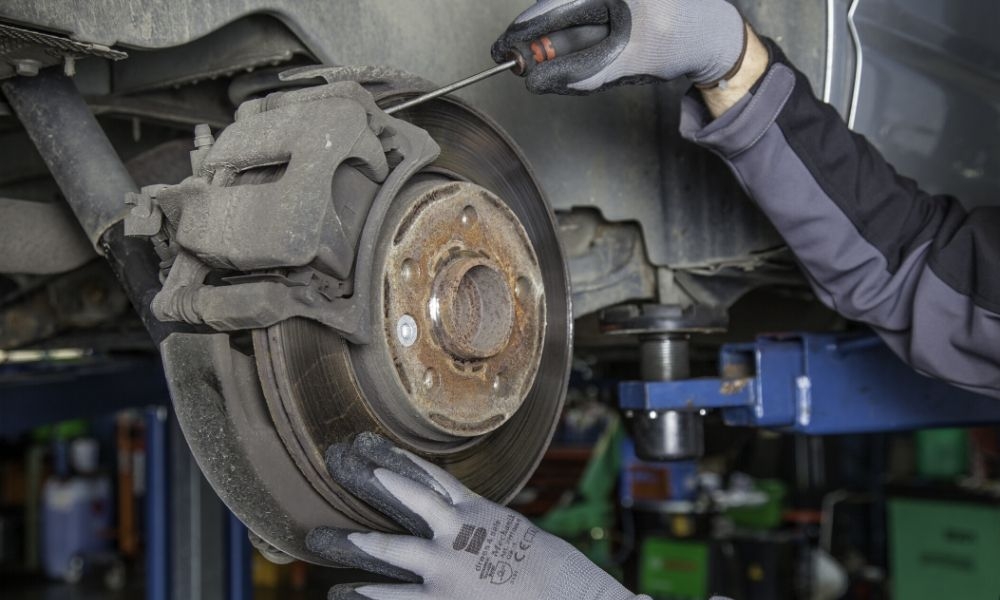
It’s tough to love a car with noisy brakes, whether you are driving it, or it squeals to a stop in front of you on the road. There are many reasons brakes make noise. Don’t ignore these common brake noises and their causes.
Squealing or Squeaking
That shrill sound of squealing or squeaking when you apply the brakes can come from inferior brake pads. The bargain basement brake pads may have bits of metal in their material that scrape against the rotor and cause a squeak.
If the squeaking is constant as you drive, your brake pads may have wear indicators that make noise when it is time to replace the pads. Sometimes, brand new pads squeal until they are broken in, but the noise may also indicate improper installation.
Little bits of dirt or small rocks and pebbles from rough roads can also cause brake noise. Bits of rust from condensation on cars parked outside overnight may also cause squealing. If the squealing doesn’t do away, have the brakes checked out.
Thumping
This noise usually comes from rear drum brakes, where the shoe presses against the drum. A worn groove in the drum can cause the shoe to snap back and make a pounding or thumping sound. Or the sound could simply come from debris or dust. If the sound comes from the rear of your car, check your manual or look online to determine if your car has rear drum brakes, and if so, have your mechanic look to determine if they are dirty or worn.
Grinding
It is unfortunate that grinding is one of the common brake noises, because it is serious: a grinding sound of metal on metal means your brake pads are shot – gone, disintegrated, worn through. A car that makes a metallic grinding noise when you apply the brakes is not safe to drive. Call a tow and get it to the shop. If you let the brakes get to this point in their lifecycle without changing the pads, prepare yourself for a major hit to your pocketbook. You are probably looking at full brake replacement – “CPR” for brakes – meaning calipers, pads, and rotors – and that’s expensive.
When you take your car in for brake service, your mechanic will have to remove the wheels. Since they are coming off anyway, have your car guy examine the state of your rims. If they’re in good shape, you’re in luck. If they are cracked, dented, or bent, you might need replacement wheels. The Wheelership carries replacement wheels for dozens of makes and models, including 18 inch rims for Honda Accord for several model years, as well as wheels for other popular new and not-so-new cars.
